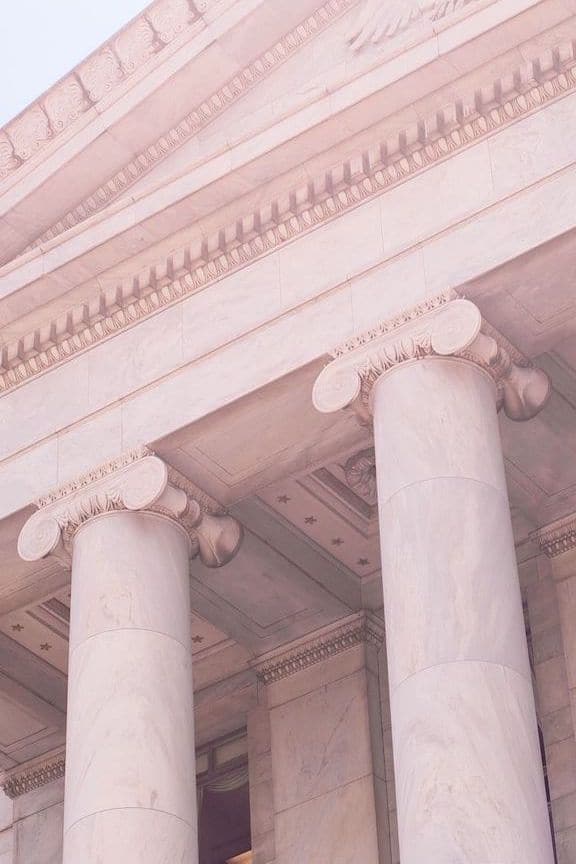The Family and the State
“The first and fundamental structure… is the family”.
Pope St. John Paul II, 39
There are Clear Responsibilities
The Family Came First
Family is the Priority
No Future without the Family
Family Must be Protected
The family “exists prior to the State or any other community, and possesses inherent rights which are inalienable”.
(Preamble, D., Charter Of The Rights Of The Family)
The State Has Clear Responsibilities
“[E]xperience…throughout history has shown the need for society to recognize and defend the institution of the family”.
(Preamble, H., Charter Of The Rights Of The Family)
- “Public authority should regard it as a sacred duty to recognize, protect and promote it [the family]…and to favor the prosperity of home life.” (Gaudium et Spes, 52)
- The authorities responsible for the common good must be seriously committed to the primary good of society, namely, the family.” (Synod Report to Pope Francis, 12)
- “Public authorities must respect and foster the dignity, lawful independence, privacy, integrity and stability of every family.” (Article 6, a, Charter of the Rights of the Family)
The State “should never fail in its fundamental task of respecting and fostering the family”.
Pope St. John Paul II, 45
However
“[T]he Church openly and strongly defends the rights of the family against the intolerable usurpations of society and the State”.
Pope St. John Paul II, 46
“The family and society have complimentary functions in defending and fostering the good of each and every human being.”
Pope St. John Paul II, 45
You may want to review.
It’s the State’s job to…

Act Specifically…
Every state has the obligation to defend “the right to form a family…established in marriage between a man and a woman”.
Pope Benedict XVI
“All those…who exercise influence over communities and social groups should work efficiently for the welfare of marriage and the family.” (Gaudium et Spes, 52)
“The institutional value of marriage should be upheld by the public authorities”. (Article 1, c, Charter of the Rights of the Family)
“States are called to enact policies promoting the centrality and the integrity of the family founded on marriage between a man and a woman, the primary vital cell of society”. (Pope Benedict XVI, 44)
Read More
“The family has a right to assistance by society in the bearing and rearing of children.” (Article 3, c, Charter of the Rights of the Family)

Proactively…
“States must guarantee all the support, including economic support, which families need”.
Pope St. John Paul II, 94
“[T]he State…must protect the family through measures of a political, economic, social and juridical character, which aim at consolidating the unity and stability of the family so that it can exercise its specific function”. (Preamble, I., Charter of the Rights of the Family)
“[P]ublic authorities must do everything possible to ensure that families have all those aids – economic, social, educational, political and cultural assistance-that they need in order to face all their responsibilities in a human way.” (Pope St. John Paul II, 45)
“[T]he family urgently needs to be helped and supported.” (Pope St. John Paul II, 94)

And with Limited Intervention!
There are “necessary limits to the State’s intervention…inasmuch as the State exists in order to protect their rights and not stifle them.”
Pope St. John Paul II, 11
“The family [is] older than the state…No human law can abolish the natural and original right of marriage, nor in any way limit the chief and principal purpose of marriage ordained by God’s authority from the beginning: ‘Increase and multiply’.” (Pope Leo XIII, 12)
“[T]he State cannot and must not take away from families the functions that they can just as well perform on their own or in free associations”. (Pope St. John Paul II, 45)
“[T]he State must not absorb the individual or the family; both should be allowed free and untrammeled action so far as is consistent with the common good”. (Pope Leo XIII, 35)
Read More
“[T]hat the civil government should at its option intrude into and exercise intimate control over the family and the household is a great and pernicious error.” (Pope Leo XIII, 14)
“[T]he State… is under grave obligation in its relations with the family to adhere to the principle of subsidiarity”. (Pope St. John Paul II, 45)
“[M]arriage and the family constitute one of the most precious of human values”.
Pope St. John Paul II, 1
“It is the responsibility of government leaders to work to build harmonious and peaceful civil societies. This can be achieved above all by investing in the family, founded upon the stable union between a man and a woman”.
Pope Leo XIV
What if We Fail?
The stakes could not be higher!
- “When the Creator’s divine plan is ignored the truth of human nature is lost.” (Pope Benedict XVI, 3)
- The family is “increasingly menaced by forces of disintegration on both the ideological and practical planes, so as to make us fear for…the future of society as a whole.” (Pope St. John Paul II, 6)
- “If there is a lack of respect for the right to life and to a natural death, if human conception, gestation and birth are made artificial, if human embryos are sacrificed to research, the conscience of society ends up losing the concept of human ecology and, along with it, that of environmental ecology.” (Pope Benedict XVI, 51)
“It is therefore indispensable and urgent that every person of good will should endeavor to save and foster the values and requirements of the family.”
Pope St. John Paul II, 86
Learn More
Learn More
FAQs
Q: What rights do families have?
A: Pope St. John Paul II, Familiaris Consortio, 46
- the right to exist and progress as a family, that is to say, the right of every human being, even if he or she is poor, to found a family and to have adequate means to support it;
- the right to exercise its responsibility regarding the transmission of life and to educate children; family life;
- the right to the intimacy of conjugal and family life;
- the right to the stability of the bond and of the institution of marriage;
- the right to believe in and profess one’s faith and to propagate it;
- the right to bring up children in accordance with the family’s own traditions and religious and cultural values, with the necessary instruments, means and institutions;
- the right, especially of the poor and the sick, to obtain physical, social, political and economic security;
- the right to housing suitable for living family life in a proper way;
- the right to expression and to representation, either directly or through associations, before the economic, social and cultural public authorities and lower authorities;
- the right to form associations with other families and institutions, in order to fulfill the family’s role suitably and expeditiously;
- the right to protect minors by adequate institutions and legislation from harmful drugs, pornography, alcoholism, etc.;
- the right to wholesome recreation of a kind that also fosters family values;
- the right of the elderly to a worthy life and a worthy death;
- the right to emigrate as a family in search of a better life.
Q: What else must the state do in support of the family?
A: The political community has a duty to honor the family, to assist it, and to ensure especially:
- the freedom to establish a family, have children, and bring them up in keeping with the family’s own moral and religious convictions;
- the protection of the stability of the marriage bond and the institution of the family;
- the freedom to profess one’s faith, to hand it on, and raise one’s children in it, with the necessary means and institutions;
- the right to private property, to free enterprise, to obtain work and housing, and the right to emigrate;
- in keeping with the country’s institutions, the right to medical care, assistance for the aged, and family benefits;
- the protection of security and health, especially with respect to dangers like drugs, pornography, alcoholism, etc.;
- the freedom to form associations with other families and so to have representation before civil authority. (Catechism of the Catholic Church, 2211)

